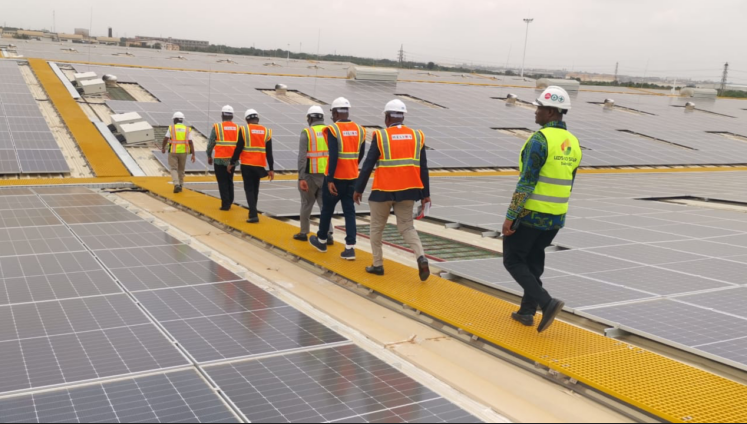Ghana has launched the first phase of its 1,000 megawatt rooftop solar project, designed to supply power to companies in the free zone enclave.
When completed, this project will be the largest solar installation in Africa and the second-largest globally.
It is expected to produce 24,750 MWh of clean, reliable electricity annually, facilitating access to the European market (EU) for local businesses.
Funded by the International Finance Corporation (IFC) from the IMF Group, the project covers 100,000 square meters and was developed by Ghanaian engineers and technicians.
During the commissioning ceremony, Herbert Krapa, Minister of State at the Energy Ministry, reiterated the government’s commitment to sustainable energy initiatives.
“Government acknowledges that the private sector has the power to contribute to growth and development. We plan to mainstream renewable energy as part of our energy generation mix, and this project signals the lead role of the private sector in achieving it,” he stated.
He emphasized the private sector’s role in growth and encouraged further partnerships to support a greener economy.
“Solar, over time, has helped reduce the cost in the energy mix and meet green credentials. I encourage more partnerships to sustain such initiatives,” he added.
Managing Director of LMI Holdings, Adlai Opoku-Boamah, called the project a significant step toward energy independence and environmental responsibility.
The solar rooftop project, owned by Helios Solar Company (part of LMI Holdings), will provide 16.82 megawatts of energy to Helios and its partners.
Amb. Mike Ocquaye Jnr., CEO of the Ghana Free Zones Authority, stressed the importance of the free zones in Ghana’s economic development, noting that this project reinforces the need for a vibrant ecosystem of free zone enterprises.
“This project reaffirms the need to foster a thriving ecosystem of free zone enterprises here in Ghana,” he said.

The project is part of a broader $30 million clean power and water agreement with LMI Holdings, aimed at creating jobs and promoting sustainable industrial growth.
According to the Ghana Energy and Investment Plan, solar power could become a major component of the country’s energy mix, potentially reaching over 150 gigawatts by 2060. Achieving this goal will require substantial technical, financial, and policy support.

